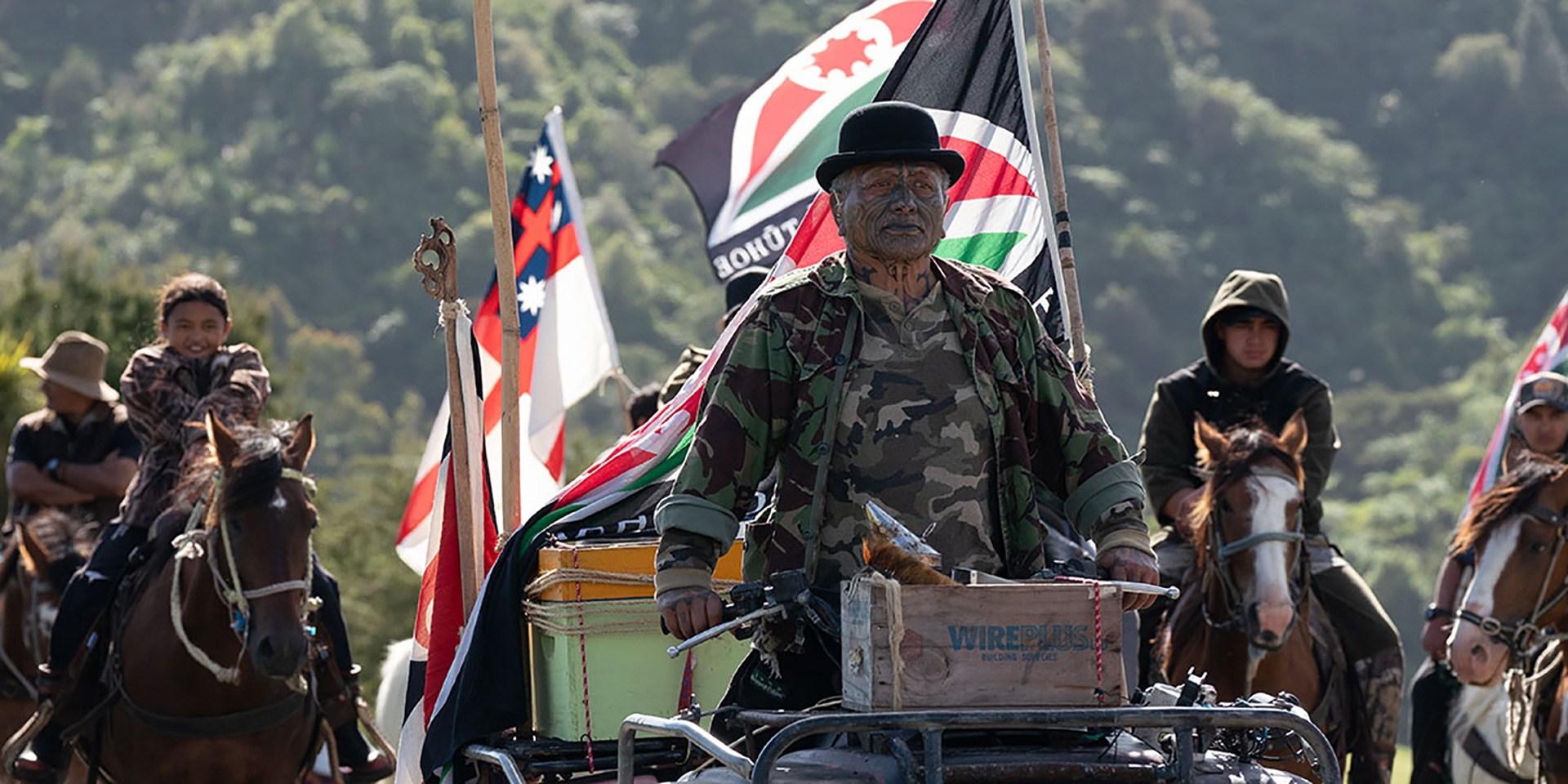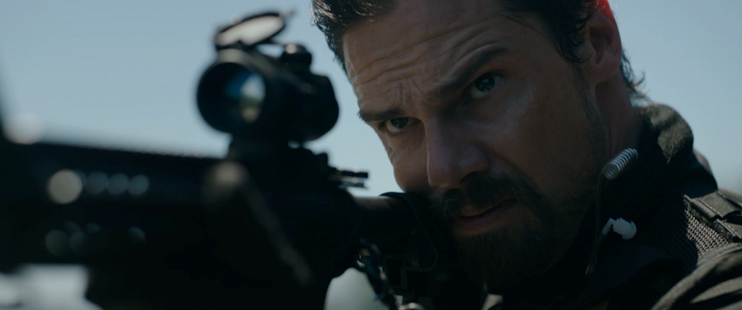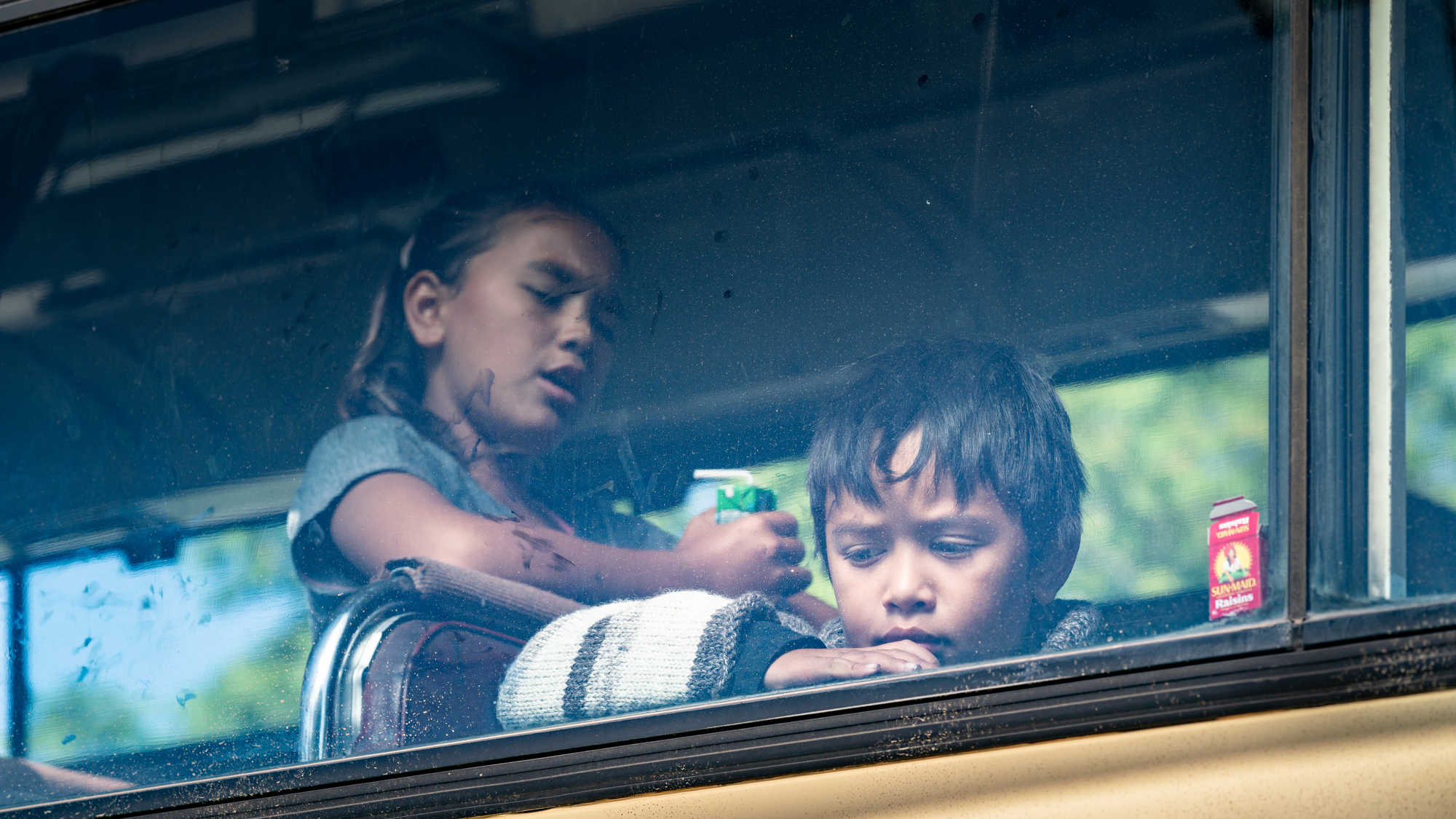In 2022, threats against a politician on social media are the sort of thing that get you permanently booted from the platform, as well as subject to heavy scrutiny by law enforcement. In 2007, when Twitter was in its infancy and Facebook was just a toddler, all they had to go on was the sort of “bush talk” overheard in Muru, the new film about an elite New Zealand police strike unit surveilling the Tuhoe Maori community of Ruatoki for possible signs of terrorist activity. When community elders engage in loose fireside chatter about fantasies for making the prime minister suffer, boosting morale during a boot camp to teach survival skills and embrace the Tuhoe identity, it’s the only excuse the police need to move in and try to extinguish the cell.
Except that no reasonable interpretation of these events would construe them as an actual plan to assassinate the prime minister, who would have been Helen Clark at the time. It’s a local sergeant played by Cliff Curtis who laughs and rightly labels it “bush talk” when he realises these Tuhoe people are being closely watched, in an echo of events that happened to them nearly 100 years earlier. The uneasy relationship between New Zealand’s native people and its more recent inhabitants, though, is no laughing matter, and Tearepa Kahi’s film examines every last conflicting sentiment among the people caught in the middle.
Curtis plays Sergeant “Taffy” Tawharau, an officer in a community so small that he also functions as its school bus driver. He’s viewed somewhat warily by the other Tuhoe, though, after he left the community, returning only to care for his ailing father. Two other local officers, Blake (Ria Paki) and Potaka (Rangi Rangitukunoa), police the community with an emphasis on aiding the troubled young people rather than locking them up – such as Rusty (Poroaki Merritt-McDonald), a teen who accidentally discharges a firearm during a fireside argument before vandalising a store in town. While these eruptions are the sorts of things the local police want to handle internally, they’re red flags to the eyes watching through hidden cameras.
There are Maori men and women among the ranks of the STG (Special Tactics Group) as well, including Maria (Simone Kessell) and Kimiora (Manu Bennett), who also have conflicting allegiances. They’re supervised by Captain Gallagher (Jay Ryan), and above him, a mystery man in an office somewhere in the city (Colin Moy), issuing chilling orders about quelling the threat. With 9/11 having prompted new anti-terrorist measures via New Zealand’s 2002 Terrorism Suppression Act, no one is going to hesitate to nip this potential conflagration in the bud – no matter how flimsy the evidence, and no matter what ensuing events along the way are open for interpretation. Racism doesn’t need an excuse to flourish.
Kahi, the writer-director, clearly envisions this movie as a form of political activism. An opening text describes the movie as not a re-creation of the anti-terrorist raids in Maori communities in 2007, but a response to it. The resulting film plays out with a lot more nuance than that mission statement would suggest. There are very few monolithic heroes or villains here, with only the shadowy figure in the office really representing the ingrained racism of white New Zealand. Ryan’s Captain Gallagher becomes less certain of the righteousness of his mission as he goes along, and faces his stiffest challenge from Kimiora, who has chosen his allegiance to a fallen officer over his allegiance to other Maoris.
Although inspired by the events of 2007, Muru is not an attempt to recreate those events with strict fealty to documented facts from the time. This might be political activism, but it is also entertainment, and it’s executed with a supreme ability to deliver on its second promise. That said, there’s real credibility to Kahi’s approach, bolstered in part by the participation of one of the main figureheads who was arrested at the time: Tame Iti, who not only produces the film, but also plays himself in a smaller but crucial role. And though this is clearly intended for a multiplex audience, it maintains this credibility by having the Tuhoe people speak in their native tongue, unless they are actively speaking to white police officers. Details like this are essential in allowing Muru to exceed the status of just another slick action film in which a historical incident is reproduced for thrills.
Muru also gets into that conflict experienced by its Maori characters without putting too fine a point on it. It is assumed by Gallagher and others that Taffy will comply with their request to inform on his community in accordance with his policeman’s vows to serve and protect. Just because he won’t doesn’t necessarily earn him the trust of his fellow Tuhoe, and doesn’t mean everyone on his force will make the same decision. Curtis, the old pro, is particularly effective in portraying the character’s struggles with this delicate balancing act.
Kahi has a handful of documentaries under his belt as well as the 2013 coming-of-age drama Mt. Zion. Muru suggests he’s ready for the next big thing, and that whatever it is, he will handle it with a keen respect for its inherent complexities.
Muru opens in cinemas tomorrow.


